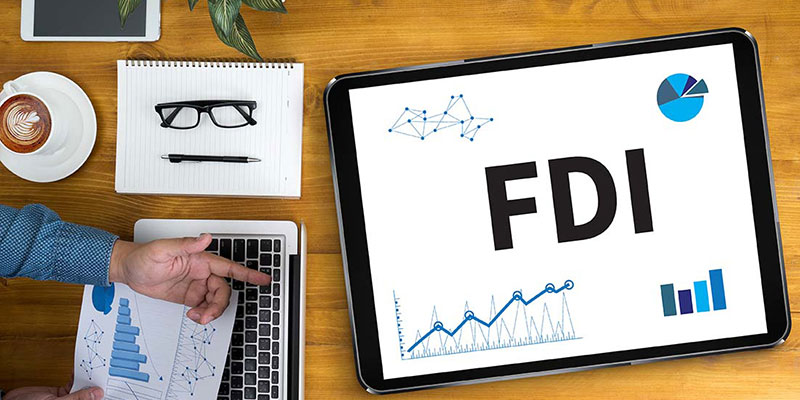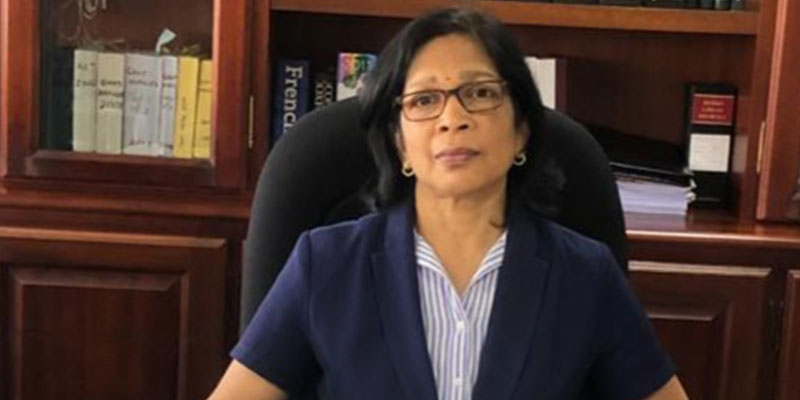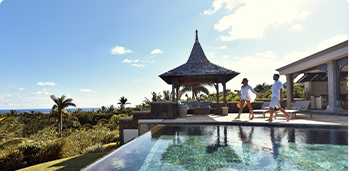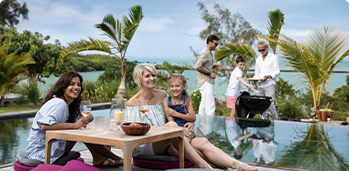
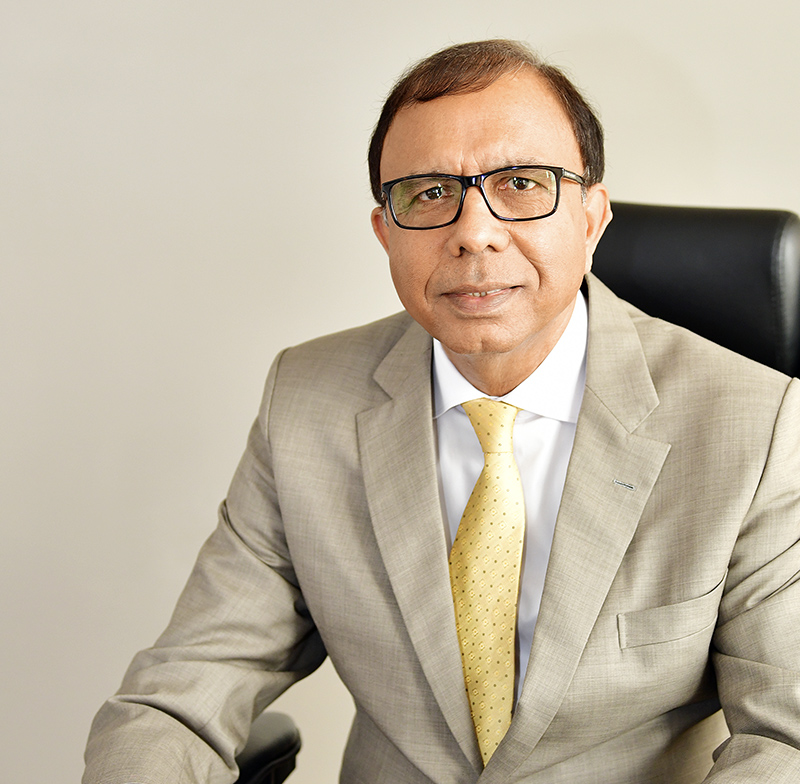
Editorial
Dear Valued Stakeholders,
We have moved into this new year emboldened by the roll-out of the COVID-19 vaccination campaigns around the world, geared to stem out the spread of the pandemic. This has inevitably resulted in expectations of a rapid return to normal for Governments, businesses and citizens….
Mr. Hemraj Ramnial, CSK
Chairman
Message of Dr. the Honorable Renganaden Padayachy,
Minister of Finance, Economic Planning and Development
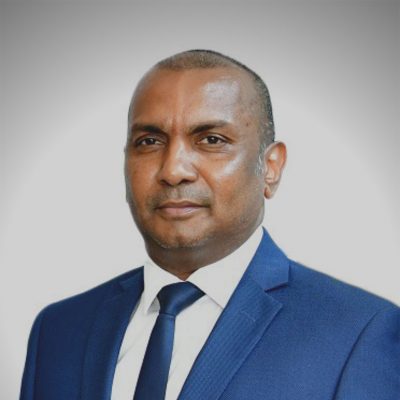
As a new chapter opens, that of 2021, it is with my eyes focused on a future made up of opportunities to consolidate and others to create, that I invite investors and economic operators to approach this new year.

The New Premium Visa
Our country’s early success in controlling the COVID-19 spread has been a result of a vigorous, decisive, and highly effective response to the pandemic.

Silver Economy
Retiring in Mauritius is possible by obtaining a residence permit through two options specifically designed for retired persons:
Interview of Mr. Patrick Héritier
CEO of PLEION
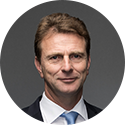
Patrick Héritier started his banking career in 1997 with SBS / UBS, where he held different Executive positions before finally becoming Head of Private Banking for Chablais. In 2007, he joined Julius Baer as Managing Director, where he launched and developed the Verbier branch of the firm. In 2013, he became a member of Julius Baer’s Swiss Executive Committee and was given the…
Work, Live & Play in Mauritius
The Editorial Team

Zakir Caunhye
Director
Business Facilitation
Department

Faraz Rojid
Head of Department
Financial Services
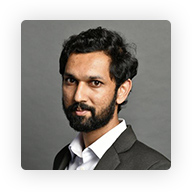
Sanroy Seechurn
Ag. Head of Department
Strategic Planning

Haliima Soreefan
Manager
Communication,
Country Branding & Digital
Marketing
Contributors : Sachin Mohabeer, Carole Rehaut, Raifa Bundhun, Sweety Labiche, Nivesha Seebah, Shabina Fatadin, Samanta Mahadoo-Nundoo, Yudeeshen Narayanan, Denagaren Ramasawmy, Bhavish Ubheeram, Avi Sewpal, Divium-Singh Ramessur
Residence Permit for Retired Non-Citizens
Retiring in Mauritius is possible by obtaining a residence permit through two options specifically designed for retired persons:
The Non-Citizen Retired Permit
The non-citizen retired permit allows a non-citizen aged 50 years and above to reside in Mauritius for a period of 10 years, with the option to renew the permit. To be eligible, the person needs to make a first transfer of at least USD 1,500 or its freely convertible foreign currency equivalent into a local bank. Thereafter, there should be evidence of a monthly transfer of USD 1,500 or USD 18,000 yearly during the 10-year term.
A person with a non-citizen retired permit may invest in property designated for non-citizens. These include apartments in buildings of two floors above ground (G+2) for a minimum investment of MUR 6 million and real estate schemes such as the RES (Real Estate Scheme), IRS (Integrated Resort Scheme), Property Development Scheme (PDS), and Smart City Scheme (SCS).
PDS Senior Living Residences
PDS senior living residences are residences developed under the Property Development Scheme (PDS). These are tailored to the needs of senior residents with all the necessary amenities in view of an active and enjoyable retirement.
Under this scheme a non-citizen and his spouse, or common law partner, can obtain a residence permit by:
- Acquiring a residential unit
- Renting or leasing a residential unit
- Acquiring a life right
Incentives
A foreign retiree investing in the PDS Senior Living may benefit from several fiscal incentives. The retiree is eligible for a 5-year income tax holiday on his pension income and other income remitted to Mauritius by himself and his spouse or common law partner.
For any additional information, please get in touch with the Hospitality and Property Development (HPD) cluster on:
Tel: (230) 203 3800
Email: hpd@edbmauritius.org
Editorial
Dear Valued Stakeholders,
We have moved into this new year emboldened by the roll-out of the COVID-19 vaccination campaigns around the world, geared to stem out the spread of the pandemic. This has inevitably resulted in expectations of a rapid return to normal for Governments, businesses and citizens.
Indeed, as the Bank of Mauritius confirmed during its last Monetary Policy Committee Meeting where it maintained the repo rate at 1.85%, there are signs of recovery since the third quarter of 2020, particularly in consumption and investment. It is expected that for 2021, GDP would grow by 7.9%. On the investment front, in 2021, FDI inflows are forecasted to reach MUR 20 billion while local investment is expected to be around MUR 37 billion.
With regard to market diversification, Mauritius has an opportunity to shift from its over-reliance on traditional export markets with the advent of the Mauritius-China FTA and the African Continental FTA. The imminent ratification of the Mauritius-India CECPA will also help in this direction. Moreover, these new agreements will guarantee a preferential market access to 68% of the world’s population.
The start of a year is also an opportune time for us to assess our situation and reflect on strategies to curtail systemic deficiencies exposed by the pandemic. Nonetheless, it is worth acknowledging the efforts made to counter COVID-19 in Mauritius by authorities, with the strict but necessary measures such as the lockdown and the closure of borders resulting in our island being COVID safe with limited disruption to social life since June 2020 while other countries are having to experience second and third waves of the pandemic.
This places us today as a formidable destination for foreign talents to migrate to Mauritius. Indeed, despite lingering risks, the country has seen an increase in demand from visitors looking to relocate to a secure and COVID-safe environment for work, leisure or retirement. In this respect, the Premium Visa, a well-incentivized and bespoke package, has been introduced which allows for extended stays of 12-months with an option for further extensions.
Such alternative products are important as the tourism sector faces mounting pressure from the economic tailwinds of the pandemic. In fact, the EDB has estimated that one premium visa holder’s contribution to GDP would be equivalent to at least that of 15 tourists.
Since the launch of the Premium Visa in mid Nov 2020, it is worth noting that more than 350 applications have been registered on the online portal from 45 different countries, which indicates that the appetite for foreigners to work-live-play in a COVID-safe destination is at an all-time-high and far outstrips the challenges we are facing.
While we find new means and avenues of addressing the situation in tourism and hospitality, we aim to reshape our investment, exports and business ecosystem to better align our economy to the exigencies of the new economic architecture which is emerging.
Let us all work together to promote Mauritius as a COVID-safe destination.
Mr. Hemraj Ramnial, CSK
Chairman
Mauritius Attracts Foreign Professionals in Several Sectors
Over the past 6 years, Mauritius has issued Occupation Permits to more than 16,800 foreigners in different sectors of the economy. The country is opened to attracting talents by offering a 3-year renewable Occupation Permit to Professionals.
Non-citizens must derive a basic salary of at least MUR 60,000 to be eligible for the Occupation Permit. Professionals in the Information and Communications Technology (ICT) sector, Business Process Outsourcing (BPO), Pharmaceutical Manufacturing, and Food Processing are eligible for an Occupation Permit at a reduced monthly basic salary threshold of MUR 30,000.
A Professional is also eligible for the 20-year Permanent Residency, after having derived a basic monthly salary of MUR 150,000 over a period of three years.
Sectors attracting foreign talents include Professional Services, Hospitality and Airline, Financial Services, Seafood & Agribusiness, Manufacturing, Property Development, Medical, ICT-BPO, and Knowledge sectors amongst others.
Professionals can be accompanied by their dependents during the duration of their permit and this includes the spouse, children up to the age of 24 years, and parents.
To drive new and emerging sectors of the economy, a Young Professional Occupation Permit (YPOP) has been introduced to enable foreign students, having completed at least an undergraduate degree in a tertiary education institution in Mauritius, to work and live for a maximum period of 3 years in the country. This new permit seeks to retain young professionals with an academic qualification in avenues encompassing Artificial Intelligence, Biotechnology, Fintech, Robotics, Financial Services, and Information Technology.
Beyond the initial period of three years, a young professional may continue to work in Mauritius on an Occupation Permit, should the employer still require his competencies.
Mauritius Extends Permanent Residency from 10 to 20 Years for Investors, Self-Employed, and Retirees.
Mauritius has revised its Permanent Residency Permit Scheme by increasing its validity period from 10 to 20 years since September 2020, thereby enhancing foresight for qualified Investors, Self-Employed Professionals, Retired Non-Citizens, and Professionals already holding an Occupation Permit or Residence Permit, as the case may be.
The different eligibility criteria are as follows:
- Investor category
Achieving a minimum annual gross income of at least MUR 15 million or an aggregate turnover of MUR 45M, over a period of three consecutive years - Self-employed category
Generating an annual business income of at least MUR 3 million for a period of three years - Retired Non-Citizen category
Effecting a monthly transfer of at least USD 1,500 over a period of three years. - Professional category
Deriving a basic monthly salary of MUR 150,000 over a period of three years.
A 20-Year Permanent Residence Permit can also be obtained by investing at least USD 375,000 (decreased from USD 500,000) in a qualifying business activity.
More information is available on the following link: https://www.edbmauritius.org/work-and-Live-in-Mauritius
Recognizing the contribution of existing Occupation Permit holders in the economy, Mauritius has offered them the possibility of obtaining a 20-year Permanent Residency, subject to the following conditions: (1) Completion of at least 3 years under an Occupation Permit before 01st September 2020 and (2) Holding a valid Occupation Permit on 01st September 2020. In addition, the holder should have met the basic conditions applicable to an Occupation Permit holder, which are for:
- Investors; achieving a cumulative turnover of at least MUR 12 million over a period of three years;
- Self-Employed Professionals, generating a cumulative business income of at least MUR 2.4 million over a period of three years;
- Retired Non-Citizens, transfer of at least USD 1,500 monthly over a period of three years; and
- Professionals, deriving a minimum monthly salary of MUR 60,000 over a period of 3 years, with the exception of professionals in the IT and BPO sector for which the minimum monthly salary is MUR 30,000.
The Permanent Residency allows the dependents to be issued with a 20-year permit as well and this encompasses the spouse, children up to the age of 24 years, and parents.
Mauritius Offers 10-year Work and Live Residency to Investors and Self-Employed Professionals
In September 2020, Mauritius transformed its work and live regime for investors and self-employed professionals by extending the duration of its Occupation Permit Scheme from 3 years to 10 years. Also, the initial investment criteria for an investor to obtain an Occupation Permit has been lowered from USD 100,000 to USD 50,000. The investment threshold for the Self-Employed category however has been maintained at USD 35,000.
The 10-year occupation permit is renewable upon satisfying certain business volume criteria which, as from the 3rd year, is a minimum annual gross income of MUR 4 million for Investors, and an annual business income of MUR 800,000 for the Self-Employed.
Investments in high technology machines & equipment and in innovative start-ups have different applicable criteria.
More information is available on the following link: https://www.edbmauritius.org/work-and-Live-in-Mauritius
During their residency in Mauritius, the spouse, children aged 24 years and below, and parents of an Investor or Self-Employed Professional are also eligible for a residence permit, allowing them to live in the country for the same period.
Investors and Self-Employed Professionals have a wide range of possibilities to cater for their accommodation needs, spanning from leasing residential properties to the acquisition of a residential unit in an approved residential scheme, such as the Integrated Resort Scheme, the Real Estate Scheme, the Property Development Scheme, and the Smart City Scheme. Acquisition of apartments outside the schemes is also possible, provided that the apartment is in a building which is Ground + 2 Levels minimum and the price exceeds MUR 6 million.
While investment is possible in a wide array of economic sectors, the following sectors have been attracting most investments under the Occupation Permit Scheme: Professional services, Financial services, Import and Export, ICT & Media, Hospitality, and Manufacturing. Mauritius provides a host of incentives to investors in different sectors of the economy.
Mauritius is a destination of choice for investors across the globe, including from France, South Africa, India, Britain, Belgium, Italy, and China.
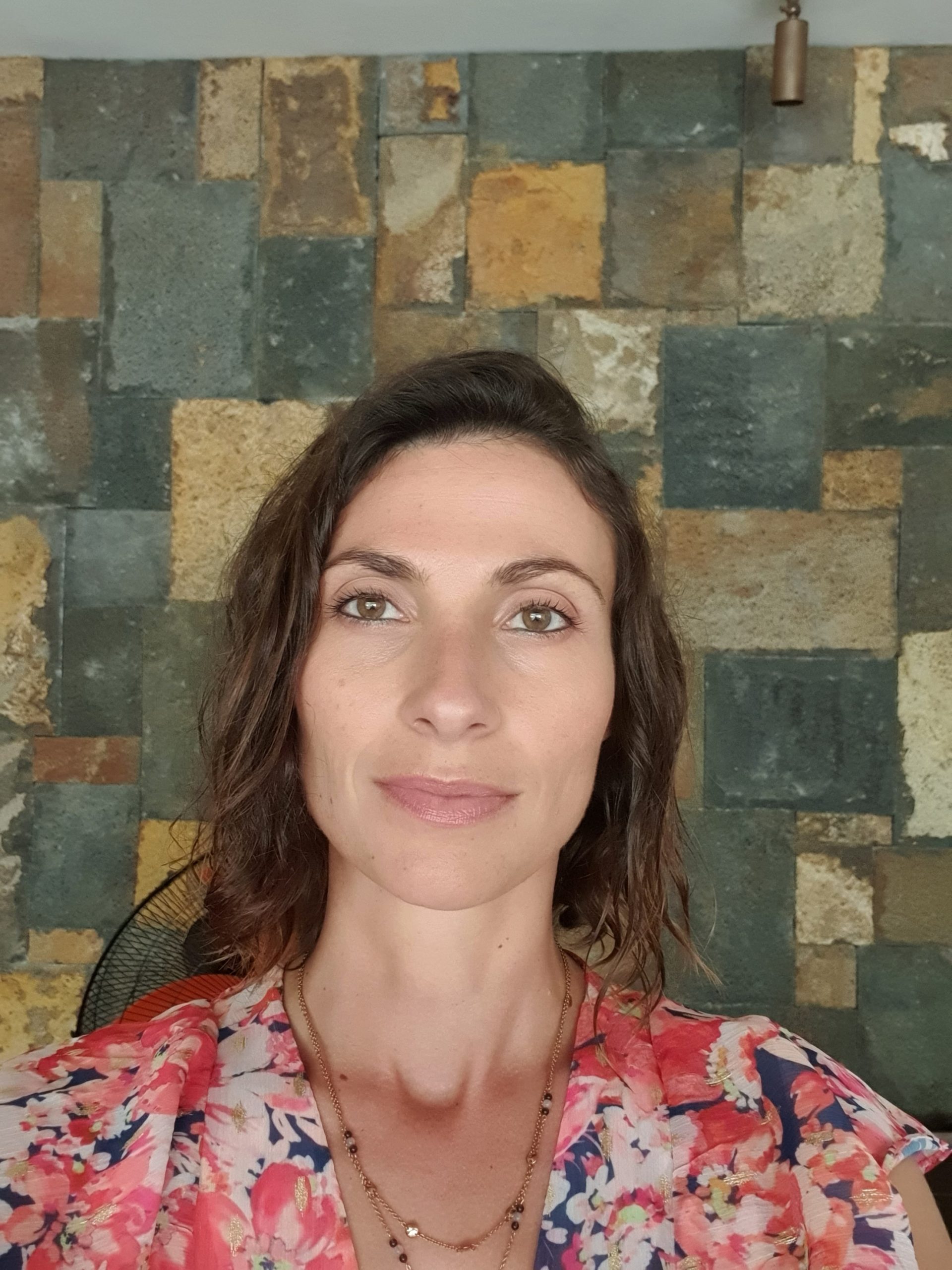
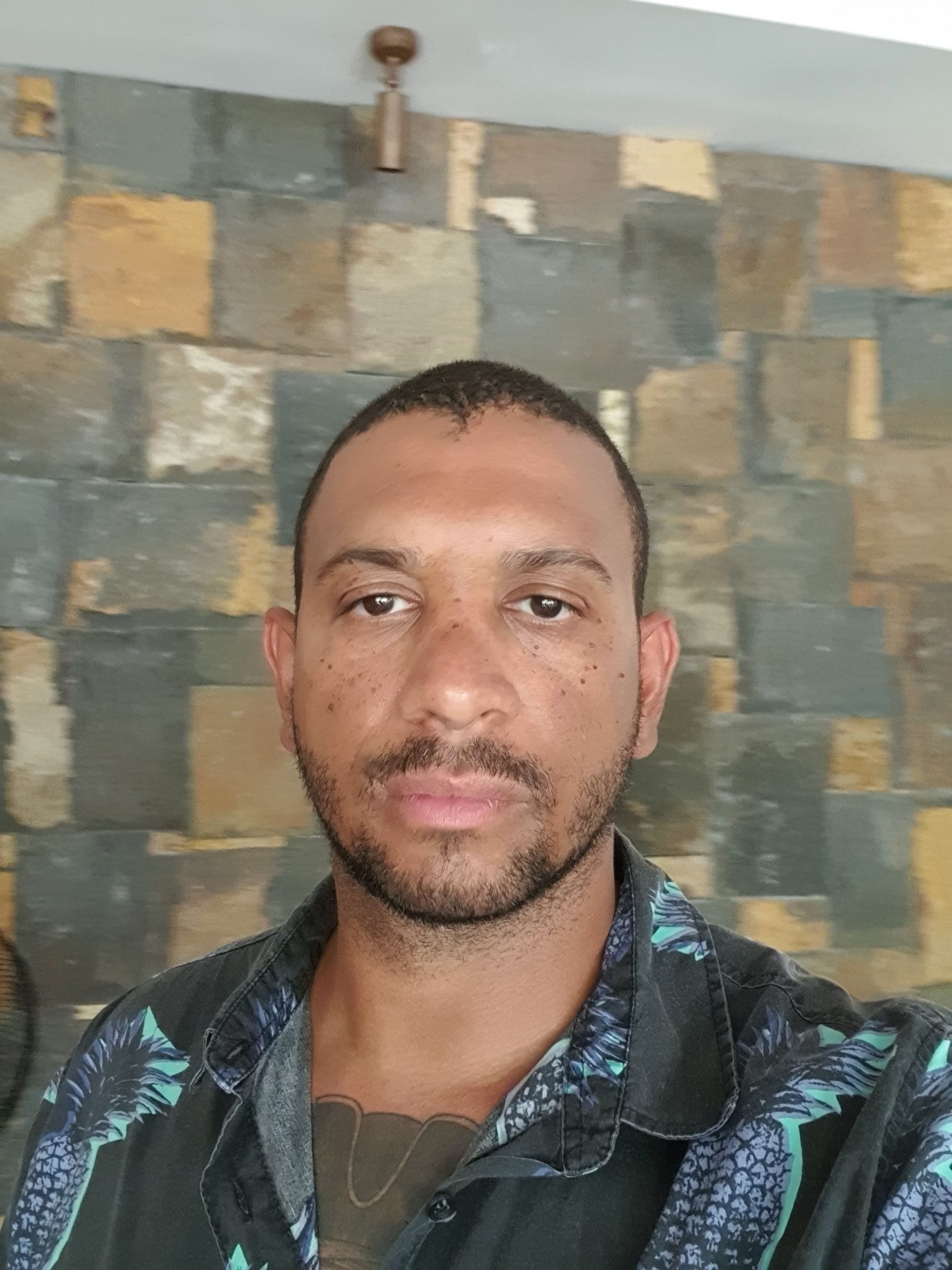
Message of Dr. The Honorable Renganaden Padayachy,
Minister of Finance, Economic Planning and Development
As we start a new chapter, that of 2021, it is with sights set on a future made up of opportunities that need to be consolidated and others to be created, that I invite investors and economic operators to consider this new year.
Before turning to the future, I would like to express my gratitude to all those who have maintained their investments in Mauritius over the past year. Revealing of the country’s ability to adapt and reinvent itself, I see in this continued commitment a strong testimony that investor confidence in the Mauritian economy is well and truly present.
While 2020 has been marked by disruptions in many ways, the year has nevertheless allowed Mauritius to demonstrate its resilience once again in the face of adversity. A result of shared efforts and successful protocols, Mauritius has set itself up as an exemplar in the management of the pandemic. To-date, the country is one of the few in the world to be recognised as a “Covid-safe” destination, that is, where the virus does not circulate in the local community.
Moreover, it is this unprecedented situation enjoyed by the country, backed by the launch of vaccination campaigns around the world, which allows us to enter the year 2021 with the hope of a gradual and positive economic recovery. International organisations and agencies, like the International Monetary Fund (IMF) or Moody’s, are also expecting sustained growth for Mauritius in 2021. The information and communication technology (ICT) sectors, high value-added manufacturing such as pharmaceuticals, or even financial services, are in fact following suit.
Of course, if the recovery at the local level is intrinsically linked to the evolution of the international situation, the fact remains that the Government of Mauritius has spared no effort to maintain our rank as the leading African country in terms of business environment while preserving the livelihoods of the Mauritian population.
In fact, despite the economic situation, the Economic Development Board (EDB) has been facilitating a total of 201 projects currently under implementation, for an amount of 238.3 billion rupees, including local and foreign direct investments.
Mauritius is also rethinking its tourism sector by coupling it to a medium-term residency strategy. The implementation of the Premium Visa in November 2020, allowing foreigners to easily settle in Mauritius for a period of one year – whether they are digital nomads, investors or even retirees – contributes to this adaptive and innovative openness strategy.
Being able to reside and work in Mauritius in an idyllic and safe setting; this is the value proposition that we are proud to be able to promote.
Mauritius, a land of investment opportunities where it is good to live, has so much to offer. The Government of Mauritius is committed, more so in the current context, to making the arrival of foreign investors in Mauritius an easy and hassle-free process and I can only encourage all those who have the ambition to make it happen.
Analysis on FDI
Projects may be delayed but investment will continue to flow
It is obvious that lockdown measures, supply chain disruptions, and economic slowdown have all led to a drop in cross border investments. A factual analysis would show that the 35-40% decline of FDI flows in Mauritius in 2020 has not been an isolated case. In fact, in its report entitled ‘Investment Trend Monitor’ published in October 2020, the United Nations Conference for Trade and Development (UNCTAD) reported that FDI flows to European economies turned negative for the first time ever, falling to -$7 billion from $202 billion. Flows to the United States fell by 61% to $51 billion.
Fall in FDI in 2019/20
Assessing the performance of Mauritius from a global perspective allows us to observe that the country has fared better than average.
Primarily, the decline in FDI resulted from global mobility restrictions over a period of nearly 4 months. In pre-crisis times, a number of programs are undertaken to reach out to foreign investors, namely international marketing campaigns and media coverage, individual and group press visits, and meetings with c-suite executives and other business leaders. The inability to conduct these contributed to the negative impact on FDI inflows.
FDI is key to our economic development. Capital inflows create jobs, boost output, and reduce budgetary deficits. More so, foreign investments are often paired with knowledge sharing and technological collaboration.
It is an imperative then to maintain focus on improving the business and investment climate through pertinent reforms which would also include the optimal use of technology. In the present conjuncture – with declining overall flows globally – we have to emphasise on collaboration with all valuable partners to enhance our skills base and stimulate awareness by being attentive and responsive to the requirements of investors.
The inception of the National Licensing System is a testimony of our will to improve our digital infrastructure to attract investors. Also, through our regular Webinars, we are linking up and establishing connections with potential investors.
We have entertained productive exchanges with AHRIM and its members, management companies, and real estate associations to increase the global awareness of business opportunities that exist in Mauritius for targetted industries and executives. We want to strengthen our efforts to attract FDI and skills and leverage in collaboration with our valuable partners to bring in more retirees and digital nomads to work and live in Mauritius. Working with the networks of each and every partner will be far-reaching and help elevate our country’s profile globally.
FDI may be in the doldrums right now, but lucrative opportunities and projects continue to exist and are being planned. Projects may be delayed but investment will continue to flow.
It is important that FDI figures are analysed carefully before any conclusions are drawn. Sometimes, FDI figures contain “a lot of noise”. This is because they can include intra-firm loans, mergers and acquisitions, and one-off payments that substantially skew the figures. These types of financial flows make a huge difference to balance sheets but have little impact on the real world. New endeavours and greenfield investments – FDIs that drive new projects from scratch – that make a real difference.
United Nations Conference for Trade and Development (UNCTAD), “Issue 36, Investment Trend Monitor, October 2020”. Web. Retrieved on 18 January 2020. https://unctad.org/system/files/official-document/diaeiainf2020d4_en.pdf
Interview of Mrs. Deoyani Hurrynag,
Acting Registrar-General
Mrs. Deoyani Hurrynag heads the Registrar-General’s Department and assumed office as Acting Registrar-General since January 2020. She is also the Acting Conservator of Mortgages.
The Registrar-General’s Department has undergone major transformations during the past decade. Can you please give us an oversight of this journey?
The Registrar-General’s Department (RGD) operates under the aegis of the Ministry of Finance, Economic Planning and Development and exists since 1804. Through time, its operations have considerably evolved.
Previously, title deeds and documents were handwritten with permanent ink and registrations and transcriptions were done manually in registers. Searches were being carried out by flipping through big and heavy registers. These were strenuous processes. Additionally, professionals and members of the public were queueing up for long hours to avail of the services of the Department. In 2005, the World Bank, in its Doing Business Report, stated that it takes 210 days to register a property in Mauritius, thus ranking Mauritius at the 157th place out of 183 countries in terms of registering property.
Furthermore, the paper-based archive started to deteriorate, registers were being torn out. The increase in transactions generated more documents and archiving required more space. There was therefore a dire need to reform and align the RGD with international best practices.
Consequently, the Mauritius e-Registry Project (MeRP) was launched in 2013 to transform RGD into an eService organization by harnessing the latest technologies and solutions that can provide integrated workflows and simplified options for professionals to conduct online transactions. The project aimed inter-alia to reduce time taken for registration of transactions, to avoid queuing for services at RGD, to adopt the green initiative by eliminating usage of paper, to reduce complexity of registration processes and provide an online service.
In October 2019, we can say that the reforms came to fruition. The World Bank in its latest publication, the Doing Business Report 2020, positioned Mauritius at the 23rd position out of 190 countries for its ease of registering property. This represents a staggering leap of 134 places within a span of 14 years. It is also important to highlight the contribution of my predecessors and the staffs of the RGD who have been instrumental in achieving these highly commendable results.
Since I took Office, I have been building on this legacy to further progress along this innovative path to transformation.
We have embarked upon a project to upgrade the hardware infrastructure which had reached the end of its life cycle. Following the replacement with new hardware, a project for upgrading our IT System, the Mauritius eRegistry System (MeRS), and migration of all applications and data to the upgraded IT infrastructure, were successfully implemented. Since then, several enhancements are under way to make the customer service more effective.
What specific reforms have been made to ease and expedite the process of registering a property?
In recent years, an array of changes has been made towards easing the process of registering property in Mauritius. The MeRS is now fully operational with an in-built taxation engine coupled with various payment options. The system is fully automated and provides for the following:
- remote online search for encumbrances,
- online submission of the deed for registration and transcription,
- online payment of duties and taxes if applicable,
- insertion of e seal,
- publication of registered document and sending the registered and transcribed document back to stakeholders electronically with the electronic seal affixed. Additionally, the RGD introduced a 2-hour Service Level Agreement for transcription and registration of documents.
In 2018, the Registration Duty Act 1804 was amended so that a new survey plan is no longer required for land parcels with an assigned Parcel Identification Number (PIN) to which no change have been made to their extents and boundaries. Along the same vein, land surveyors can make an application for a PIN electronically with the Ministry of Housing and Land Use Planning. In 2019, The Stamp Duty Act was abolished, and Stamp Duty is no longer levied on property transactions.
This headway proved to be instrumental during the Covid-19 crisis and ensuing lockdown where transactions could still be made remotely to ensure business continuity. Our automated system allowed us to reinvent ourselves and respond promptly to the need of our stakeholders, supported by the setting up of a Work-from-Home Team.
Most recently, the RGD has made significant investment into upscaling the capacity of its servers. Consequently, several stakeholders such as notaries, banks, leasing companies, land surveyors and various Government Agencies can now conduct online searches remotely. Following amendments through The Finance (Miscellaneous Provisions) Act 2020, it is mandatory since 3 November 2020 for notaries, banks, insurance companies, leasing companies and dealers in new and imported second-hand motor vehicles to submit their deeds for registration electronically.
Furthermore, other modes of ePayment will be introduced shortly besides online payment through credit and debit card – the Direct Debit System being currently under development.
Can you please elaborate on the collaboration between the RGD and the National Land Transport Authority (NLTA) to make it easier to register a vehicle?
In line with Government strategy towards digitalisation of services, both the NLTA and RGD are working together to implement an online registration system for the registration of motor vehicles. This will allow people to complete the whole registration process from the comfort of their home.
As an immediate solution for the one-stop-shop, as from 10 August 2020, satellite counters of the National and Land Transport Authority (NLTA) became fully operational on the premises of the RGD, that is, Level 6, Emmanuel Anquetil Building, Port-Louis. This physical one-stop-shop for the registration of motor vehicles services on average 110 additional customers for the issue of the “Certificat de Gages sans Deplacement” on a daily basis. The advent of this facility has been pleasantly welcomed by the public at large because it saves customers from going back and forth.
How can someone access the voluminous data held at the RGD?
All the data are now stored digitally in our system. Anybody paying a search fee can access the system. In the past, searches on our database could only be carried out from our search room at our premises. However, now online accesses have been granted to notaries, banks, land surveyors, insurance companies and several public sector agencies upon request. This development allows key stakeholders to query the database outside office hours and at the same time, this optimises office space. This service will be made available on a 24/7 basis to the public soon. Additionally, the Land Administration and Valuation Information Management System (LAVIMS) 2.0 project by the Ministry of Housing and Land Use Planning will further enhance transparency as the public will be able to access the cadastre. The RGD also publishes monthly statistics on the number of transactions by type Furthermore, there exists a complaint mechanism on the website of the RGD where a dissatisfied customer can lodge a complaint. The complaint is sent to the relevant unit and is dealt with within a maximum of 5 working days.
What are the upcoming initiatives by the RGD?
The Government of Mauritius signed a Reimbursable Advisory Services Agreement with the World Bank for technical assistance to the RGD in its quest to improve the Secured Transactions Regime in Mauritius. This landmark venture is being conducted in close collaboration with the Economic Development Board of Mauritius. The goal of this reform is to enhance access to credit facilities, particularly for micro, small and medium enterprises, by improving the legal and institutional frameworks governing secured transactions with respect to movable property in Mauritius. The team has completed their legal assessment and consultations are on-going with both public and private stakeholders, namely Bank of Mauritius, Corporate and Business Registration Department, National Land Transport Authority, Business Mauritius, Mauritius Chamber of Commerce and Industry, SME Mauritius, SME federations, commercial banks, and law firms remotely amidst the travel restrictions imposed due to the outbreak of the Covid-19 virus. Several regulatory amendments shall be required ensuing the final report which will be the foundation for a modern collateral registry, following which, registrations, amendments, cancellations and searches can be performed online.
On a broader note, the Covid-19 pandemic has significantly accelerated the pace of structural changes.
At the technical level, a project has been initiated for the implementation of a Disaster Recovery (DR) Site and establishment of a Business Continuity Plan (BCP) with the assistance of UNDP.
What shall be the opportunities open to businesses with the advent of such a collateral registry?
Businesses, especially SMEs, will have a dizzying array of options in terms of the types of collaterals they can pledge to secure finance with lending institutions such as inventory and raw goods, invoices, accounts receivables, vehicles, durable consumer goods, bank accounts, intellectual property rights, industrial and agricultural equipment and so on. As a matter of fact, most of businesses have their capital tied up in movable assets whilst the majority of collaterals solicited by financial institutions are immovable properties. This reform will hence be instrumental in addressing this market mismatch by providing a secure platform for such transactions. This measure may also serve as a strategy to boost business activity and stimulate economic growth of impacted sectors in the aftermath of the COVID 19 pandemic. A lot of countries in the region have already made inroads in that direction, where SMEs are able to raise funds by using mostly movable collaterals.
Interview of Mr. Patrick Héritier
CEO of PLEION
Patrick Héritier started his banking career in 1997 with SBS / UBS, where he held different Executive positions before finally becoming Head of Private Banking for Chablais. In 2007, he joined Julius Baer as Managing Director, where he launched and developed the Verbier branch of the firm. In 2013, he became a member of Julius Baer’s Swiss Executive Committee and was given the management of the branch in Bern and eventually the Central and Eastern Regions in Switzerland from Bern to Saint Moritz.
In addition to his airline and fighter pilot experience, Patrick holds an Executive MBA (EMBA) from Rochester-Bern, and completed his Advanced Management Program at INSEAD Singapore. He also holds a CAS as board member from Bern University.
In 2017, Patrick joined PLEION as CEO and became a Member of the Board of Directors in 2020.
PLEION is an important player in the Mauritius financial services landscape. Please tell us more about your Group and its activities.
PLEION started its operations in Mauritius in 2007, with its core activity being wealth management. This decision came from the conviction that Mauritius, with its well-regulated and structured financial services sector coupled with its strategic geographic positioning, has attractive features for wealth management.
We have made tremendous progress since we started our activities in Switzerland in 1980. We strengthened ourselves, both in terms of geographical reach and capabilities. Today, we have five offices in strategic locations in Switzerland, one office in Monaco, and we are in the process of establishing a presence in Luxembourg. Over the years, we have built close relationships with our clients who trust us to manage their affairs despite the change in generational ownership.
Since 1980, we have naturally diversified our global offering to cater for the needs of clients looking for an integrated approach. Our range of services includes the distribution of financial products, the setting up of international structures across multiple jurisdictions, fund administration, real estate, relocation of High-Net-Worth Individuals, wealth structuring, consulting, corporate finance and advisory, fund management, as well as business IT solutions.
In Mauritius, we count 120 collaborators in two locations, namely Trianon and Grand Bay. Our approach consists of leveraging our Swiss and international expertise and experience in the financial sector by adding the capabilities and knowledge gained in Mauritius for serving both developed and emerging markets.
Since PLEION has set its footprint in Mauritius, the group has expanded its operations. Can you tell us more on your accomplishments and the reasons behind your strategy in Mauritius?
Since our inception in Mauritius, we have developed our expertise and provide, through the Mauritius International Financial Centre, services and solutions to corporates and individuals that invest and do business in Mauritius and mainland Africa. With our clients at the centre of everything we do, our strategy is to act as a powerful enabler, allowing them to maximise both their return on investment and the value of their company. We allow our clients to focus on their core activities and help them achieve their objectives.
We have been able to add corporate finance and advisory capabilities to our range of services and disrupt the market with innovative offerings. Since starting its operations in 2019, PLEION Corporate Finance Ltd has successfully helped several Mauritian companies, raising MUR 6 billion of loan. Recently, PLEION Corporate Finance organised a Green Bond Boot Camp, a first in Mauritius, in collaboration with Climate Bonds Initiative. We are again leveraging on our international expertise.
We are also very happy to announce that we are in advanced merger talks with another group present in Switzerland, Russia, Thailand, and Dubai, engaged in wealth management, family office, and financial and estate planning. This move will strengthen our global reach and our position as the integrated wealth partner for our clients. It is important to understand that we see Mauritius and Dubai as complementary jurisdictions. In fact, through our offices in various jurisdictions, we are able to add an international dimension to the solutions we provide to our clients.
With our expertise and experience in wealth management and pension fund management in Switzerland, we have as objective to bring our know-how to the local market.
Does Mauritius have the prerequisites for global companies to domicile their business in the jurisdiction?
Since gaining its independence in the late 1960s and despite the odds, Mauritius has gone through an outstanding transformation. From being a monocrop economy dependent on sugarcane to transforming into a strong and diversified one, Mauritius today prides itself to be an ideal jurisdiction for global companies to domicile their business. Success and development have paved the way thanks to some key fundamentals: economic democratisation, inclusive growth, development of human capital and social mobility. This can be appreciated by looking at the World Bank’s Ease of Doing Business 2020 report where Mauritius ranks 13th globally.
Over the years, Mauritius has put in place a good regulatory framework that has attracted many investors. Today, the jurisdiction faces the economic headwinds of the COVID-19 pandemic and the unfavourable report from the EU. However, improvements are being made and the FATF recently praised the advances of Mauritius in the strengthening of the regulations pertaining to AML/CFT. In the short run, the Mauritian financial sector faces various challenges. In the long term however, Mauritius will benefit from the advantages of being at par with best international practices, especially in doing business with sub-Saharan Africa and the world.
In addition to its regulations, Mauritius ranks first among African countries in numerous international indices, including ICT development, good governance, ease of doing business, political & social stability and economic freedom, amongst others. Indeed, Mauritius provides a business and investment-friendly environment to corporates and investors with its multilingual population and strong hybrid legal system.
On top of being a conducive place to do business, Mauritius offers a secure living environment; the quality of life makes it worthwhile for family relocation. Mauritius has attracted many expatriates and highly qualified professionals who are continuously helping in shaping up the Mauritius International Financial Centre. Indeed, through PLEION Private Services Ltd, a company specialising in the sale of luxury villas and apartments in Mauritius, we noticed that many people who want to do business in Mauritius are interested to invest in the booming real estate sector of the island. In this respect, we hope that the current pandemic will soon be subdued.
Various companies are currently using Mauritius as the platform for African bound operations. What are your views, and is Mauritius a fit for African operations?
We have seen a growing interest for Mauritius from individuals and corporates from Africa, Europe and Asia, looking to work in a safe, COVID-free environment and cost-efficient jurisdiction, from where they can carry out their operations seamlessly.
According to the Managing Director of Sunibel Corporate Services Ltd, a provider of tailored corporate, trust, fund and fiduciary services – and one of our partner companies – in many cases, the features of Mauritius mentioned above constitute an ecosystem that international clients are looking for to conduct business. The certainty of the law, the ability to have 100% foreign ownership, the free movement of capital and dividends, the absence of exchange control and Investment Promotion & Protection Agreements (IPPAs) that Mauritius has with various African countries, are definitely a plus when deciding to do business from Mauritius.
The jurisdiction is keeping up with international business trends by adding more financial products to its portfolio and by regulating certain activities. These include Fintech related products (Custodian Services Licence for Digital Assets; Investment in cryptocurrency as a digital asset; Securities Token Offerings; and Peer to peer lending platforms) and Variable Capital Company structures, to name a few. New financial products are only going to attract more sophisticated investors.
Mauritius has an important role to play in channelling investments and business to Africa and remains the preferred investment platform at the confluence of Africa and Asia. The latest AfrAsia Bank Africa Wealth Report highlights what we already knew, which is that Mauritius has an untapped potential for wealth management in Africa. The reality is that emerging markets in Africa will definitely provide higher returns compared to traditional markets. This is where capital might flow more in the future and Mauritius is the ideal place to structure and manage those investments.
Interviewed by Nivesha Seebah
- 1
- 2
